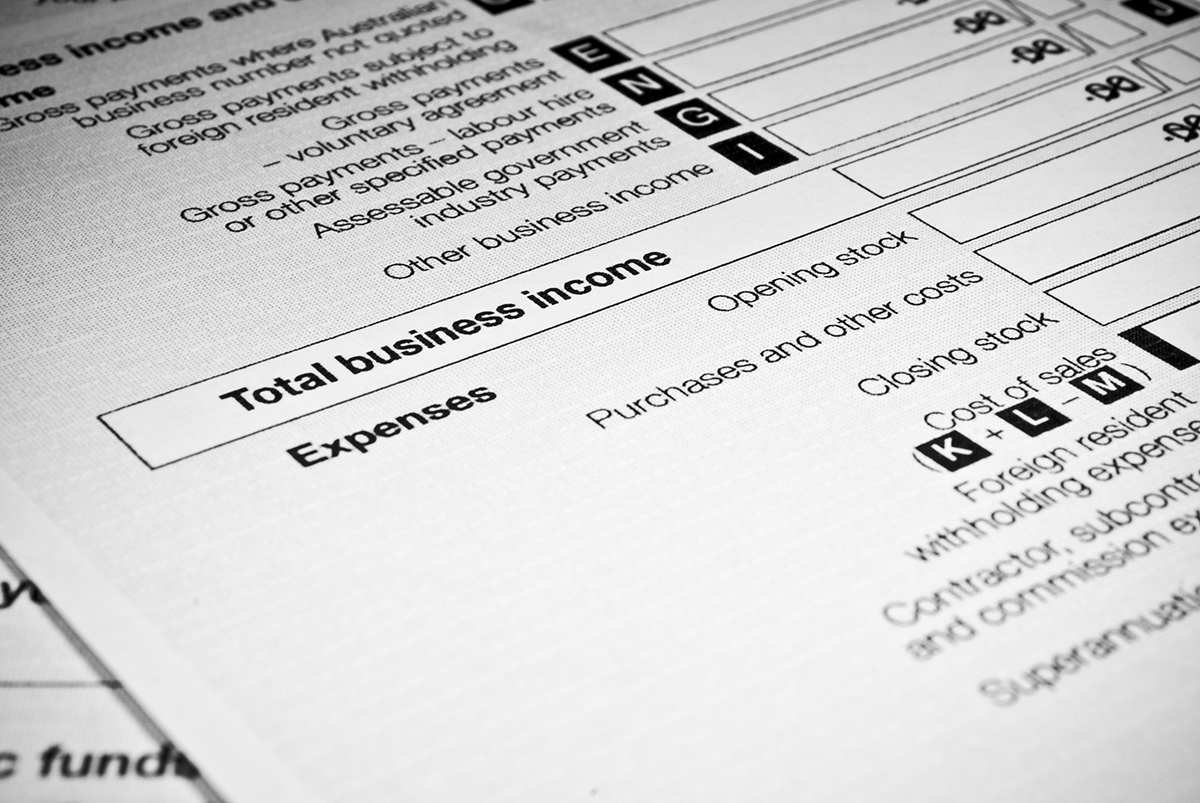The Top 5 Forgotten Tax Deductions for Doctors
May 15th, 2017
Tax time will soon be starting again, so it’s the perfect time to review individual tax-deduction strategies – especially deductions often overlooked by doctors.
We surveyed our senior medical accountants and asked them “what are the top 5 forgotten deductions on individual tax returns?” – that is, deductions people can claim but often forget or don’t know about.
We’ve compiled their survey responses to create the MEDIQ Medical Financial Services Top Five Forgotten Tax Deductions.
Take a look below – do any of these deductions apply to you? Are you keeping proper records to make sure you get the best possible tax refund?
1. Cost of managing your tax affairs
Did you use MEDIQ Medical Accountants or another tax agent to prepare and lodge your tax return last year? If you did, then you can claim the amount you paid on this year’s return. Simply put the amount you paid in the prior year into section D10 – Cost of Managing Tax Affairs on your tax return.
The ATO permits a range of claimable categories in this area, so make sure you take advantage of everything you’re eligible for.
- Preparation and lodgement: Don’t forget to claim for the costs of preparing and lodging both your tax return and activity statements. Under this category you can claim for buying tax reference materials, the fee paid to your registered tax agent (RTA) for lodgement, and the costs of getting advice from your RTA. If you’ve incurred costs while dealing with the ATO about tax matters, these expenses are also deductible.
- Travel for tax advice: If you’ve incurred travel costs for getting tax advice, this cost is also deductible against your income.
- Administrative Appeals Tribunal (AAT) appeals: If you’ve appealed to the AAT in regards to tax issues, the expenses are deductible.
- Valuations for deductible items: You can claim a deduction where you’ve incurred expenses for getting a valuation for a deductible gift or donation of property. You can also claim if you obtained a valuation for a deduction for entering into a conservation covenant.
- Interest paid to the ATO: You can claim a deduction for interest charged by the ATO.
2. Union/membership fees
Are you part of the AMA? How about your college expenses? If you pay union or membership fees and they are related to your current occupation, then you can claim the cost of these fees at item D5 – Other work-related expenses on your tax return.
Your professional membership fees are deductible against your personal income. Membership associations like the AMA are usually more than happy to provide you with a pro-rata receipt to support your claim for a deduction. You do need to have spent the money yourself without getting reimbursed for it to claim as it as a deduction.
You can also claim for self-education expenses. However, make sure these are work-related expenses. This means the course should have a ‘sufficient connection’ to your current job. It should maintain or improve the skills or knowledge you need in your current job. The course should be likely to result in an increase in your income from your current employment.
Self-education expenses cover course fees as well as accommodation costs incurred in taking the course. You can claim also for computer consumables (such as paper and printer toner). If you buy technical equipment (over $300) or have equipment repaired, you can also deduct these costs.
The cost of textbooks, professional journals, and home office running costs are some other deductible self-education expenses. Even parking fees, stationery, and postage are deductible costs, so make sure you track your study-related expenses and claim for all allowable items. Note HELP loan repayments and Student Financial Supplement Scheme repayments are not deductible.
3. Work-related car expenses

How you claim for work-related car expenses depends on whether you’re a self-employed doctor or not. If you’re self-employed, your business structure is another important consideration.
Employee
You can’t claim the cost of driving from home to work or vice versa unless your home was your base of employment. You can claim for the following:
- Two workplaces: Trips taken between two separate workplaces such as when you have a second job.
- Multiple sites of work: Travel from your regular workplace to another workplace, such as a client’s location, where you were still on duty. You can claim for the trip you take back to your regular workplace or the trip you take directly home.
- Alternative work site: You can claim for trips from your home to an alternative work site, and trips from the alternative site to your regular workplace or back home. You can’t claim this type of travel allowance if an alternative workplace has become your regular workplace.
Travel to and back from work due to minor work-related duties (for example, picking up the mail), or trips taken while you’re on-call can’t be claimed. Travel due to shift work or lack of public transport are also not allowable deductions.
You can use the cents-per-kilometre or logbook methods to track car-travel costs.
Sole trader
You can claim deductions for a car you own, lease, or hire. You can’t claim for private use of the car, so keep a diary to demonstrate the breakdown between private and business use if necessary.
Costs such as fuel, repairs, servicing, insurance, and registration are claimable. You can’t claim for travelling between your home and business premises unless you work at home and make trips for business purposes. You can use the cents-per-kilometre method or logbook method to track your expenses.
Company or trust
If your business is structured as a company or trust, you can claim for vehicles you own or lease. This covers lease payments, financing repayments, and all other running expenses. Your vehicle should be used in the everyday running of your business, and this could be a car provided to you as an employee of the business.
You’ll need to pay fringe benefits tax if you use the car partly for private purposes. You can use the logbook method or cents-per-kilometre method to track your car-travel costs.
4. Home computer use
As a busy doctor, do you often finding yourself taking work home? How about consulting from your home office in emergencies? Or are you based primarily at home as a medical practitioner? If you are, then you may be able to claim the cost of using your personal computer and internet as a tax deduction.
Computer
Whether you work from home full-time or do only some work at home, you can claim for the decline in value for your computer and for internet costs. You can claim for these even if you don’t have a designated medical office at home. You can claim outright for computers costing up to $300, or depreciation for computers costing $300 or more. For proof of your purchases, keep records of your expenses, including receipts.
Internet
Work out a percentage reasonably reflective how much you use your home internet for work. If you’re claiming more than $50, keep records for a four-week representative period in each financial year. This representative period will be used to calculate your total deductions for the year.
Records can include diary entries. For example, you could log how much data you’re downloading for your home internet for work purposes, then compare this to your total downloads. This makes it easy to work out the percentage of your monthly internet bill to claim for work-related purposes.
5. Mobile phone expenses
Do you use your mobile phone for work purposes? Are you sometimes required to call patients or other staff members on your personal mobile phone?
If you answered yes, then you can claim the cost of these calls as a deduction on your tax return. Remember, you can only claim the cost of your work related calls, not your entire phone bill.
Example: Mark pays $49 per month for his mobile phone plan. He estimates that 50% of his monthly phone calls are work related. Therefore:
50% of $49 = $24.50 per month
$24.50 x 12 = $294 per year Mark can claim $294 on his tax return as a deduction for mobile phone expenses
Is it worth it?
While some of these items may seem small, when added together they could save you a lot of money. For example, if we used just the examples we listed in item 4 and item 5 we would have almost $600 of extra deductions to add to a tax return. For someone earning $50,000 per year, this could see an increase in their tax refund by $180. So when you start preparing for your tax return, make sure you don’t forget any of these deductions.
If you use MEDIQ to assist with the completion of your tax return, then we will use our comprehensive list of deductions and categories to help you get back everything you’ve earned over the financial year. Please contact your MEDIQ Medical Accountant to arrange a meeting to go through our complete checklist.


